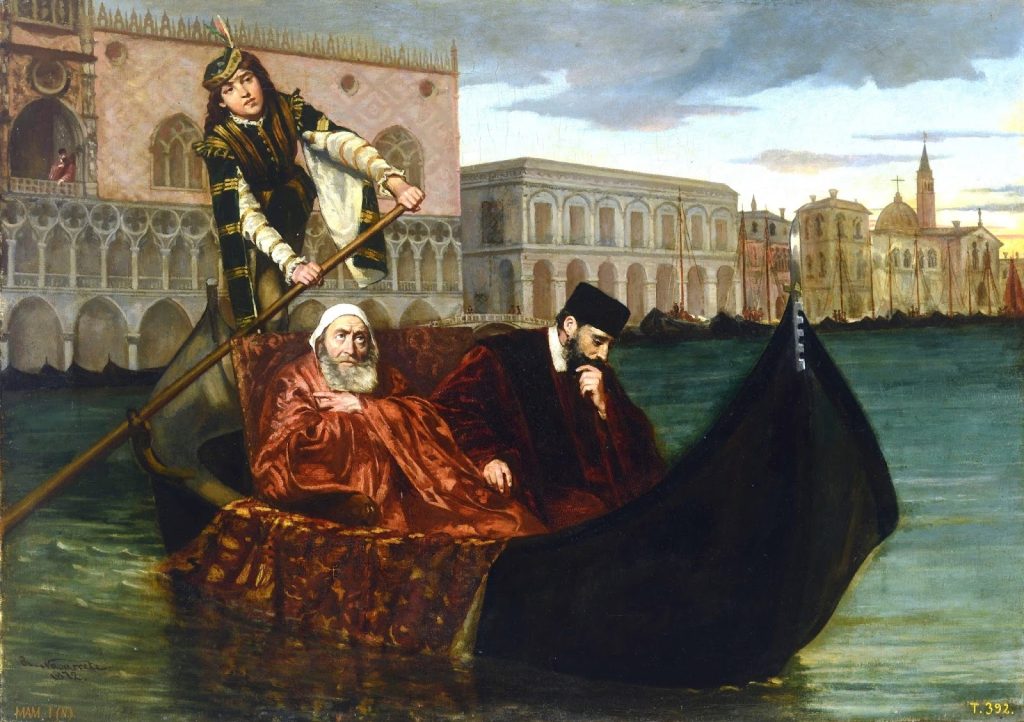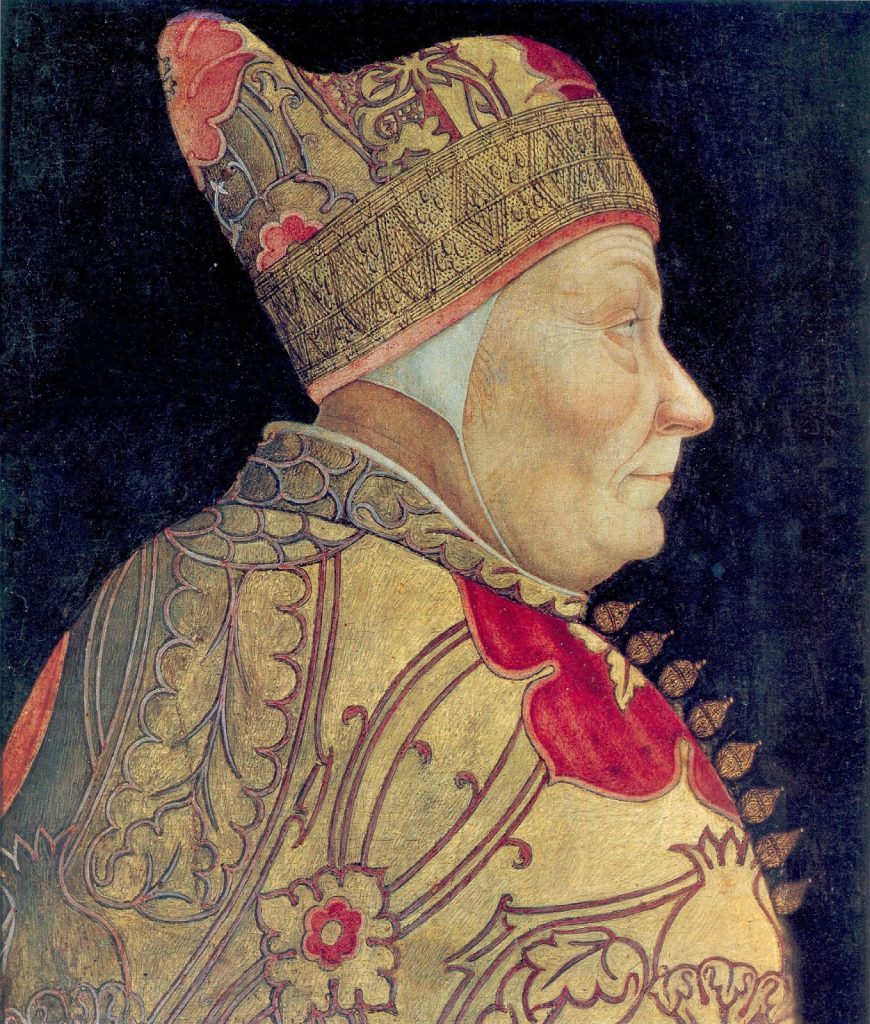Francesco Foscari, the 65th Doge of Venice, reigned from 1423 to 1457 during one of the most turbulent periods in Venetian history. His rule is remembered for both the expansion of Venice’s influence on the Italian mainland and the personal tragedies that marked his time in office.
Foscari’s tenure, spanning over three decades, witnessed Venice’s increasing role in the complex political landscape of Renaissance Italy, yet it also brought him into direct conflict with the powerful aristocracy of the Republic.
Born into a wealthy and influential Venetian family in 1373, Francesco Foscari quickly rose through the ranks of Venice’s political and military elite. He held various positions of importance within the Republic, including being a member of the influential Council of Ten, an elite governing body that often played a decisive role in Venice’s affairs. His ascent culminated in his election as Doge in 1423, when he was already a seasoned statesman in his fifties.
Foscari’s election as Doge marked a significant shift in Venice’s foreign policy. Unlike many of his predecessors who focused on maritime trade and the defence of Venice’s overseas possessions, Foscari was committed to expanding Venice’s influence on the Italian mainland. This ambition soon embroiled Venice in a series of conflicts with neighbouring powers, including Milan and Florence.
The Wars of Lombardy
One of the defining aspects of Foscari’s rule was the Republic’s involvement in the Wars of Lombardy. Venice had long sought to extend its control over key territories on the Italian mainland, known as the Terraferma, which would provide the Republic with greater resources and secure its trade routes. Under Foscari’s leadership, Venice waged numerous wars against the Duchy of Milan, led by Filippo Maria Visconti, to gain control of strategic cities like Brescia, Bergamo, and Cremona.
These wars were expensive and strained Venice’s resources, but they also significantly expanded its territories. By the mid-15th century, Venice had established itself as a dominant power on the Italian mainland. However, this expansion came at a cost, both financially and politically. Foscari’s relentless pursuit of territorial gain generated internal opposition, especially from the Venetian aristocracy, who resented the high taxes and the Republic’s increasing militarisation.
Internal Struggles and Tragedy
While Foscari was successful in foreign policy, his personal life was marred by tragedy. The most significant blow came from the fate of his son, Jacopo Foscari. Jacopo was accused of corruption and bribery, and, in 1445, was exiled from Venice after a politically charged trial. The young Foscari’s case became a symbol of the tension between the Doge and the Venetian nobility. Francesco Foscari’s enemies within the Republic seized the opportunity to weaken his power, using his son’s trial as leverage.

In 1456, Jacopo was again accused, this time of treason for allegedly communicating with foreign powers. Despite his father’s position as Doge, Jacopo was tortured and once more sentenced to exile, where he would later die. The Doge’s enemies further used this incident to attack Foscari, claiming that his family’s disgrace had brought shame to Venice.
The Fall of a Doge
Francesco Foscari’s downfall came in 1457. The Council of Ten, growing increasingly dissatisfied with his leadership, forced him to abdicate. The long and costly wars, combined with the political machinations of his rivals, had eroded Foscari’s support among the Venetian elite.
At the age of 84, after 34 years in power, he was forced to resign. His departure was dramatic legend has it that he collapsed after hearing the bell of St. Mark’s Basilica toll for the election of a new Doge, a symbol that his time had truly ended.
Just days after his resignation, Foscari passed away, marking the end of an era in Venice. Though he expanded Venice’s territorial reach, his internal conflicts and the tragic downfall of his family overshadowed much of his achievements.

Francesco Foscari’s life and reign became the subject of many historical and literary works, including Lord Byron’s play The Two Foscari, which dramatises the relationship between the Doge and his son Jacopo.
Foscari’s legacy in Venice remains mixed. He is credited with helping to make Venice a major land power in Italy, but his rule also exposed the limitations of Venice’s political system, particularly its oligarchic nature.





